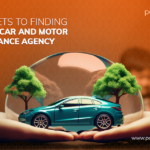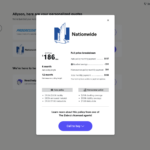Why Car Insurance is Essential
Car insurance isn’t just a legal requirement; it’s a safety net for financial protection on the road. Imagine this scenario: you’re cruising down your favorite stretch of highway when, suddenly, another driver collides with your car. The costs of repairs, medical expenses, and potential lawsuits can quickly spiral out of control. That’s where the best car insurance quotes come into play, ensuring you choose coverage that fits your needs and budget.
But with so many options available, how do you determine what the “best” actually means? This article explores various factors that contribute to the best car insurance quotes, guiding you through the maze of choices.
The Factors Influencing Car Insurance Quotes
Your car insurance quote reflects various risk factors. Understanding these can help you choose coverage that not only fits your budget but also provides adequate protection. Here are some critical elements that insurance companies consider:
- Your Driving Record: A clean driving record often leads to lower premiums. If you’ve had accidents or traffic violations, expect higher quotes.
- Your Location: Urban areas tend to have higher crime rates, leading to increased premiums. Conversely, rural areas may provide more affordable options.
- Your Vehicle’s Make and Model: Luxury cars or vehicles with high theft rates may cost more to insure.
- Your Age and Gender: Statistically, younger drivers, especially males, often face higher rates due to perceived higher risk.
- Credit History: In many states, insurance companies can use your credit score to determine premiums, assuming lower scores equate to higher risk.
What to Look for in the Best Car Insurance Quotes
When searching for the best car insurance quotes, it’s crucial to look beyond price. Consider the following aspects to ensure you’re making a well-rounded decision:
- Coverage Types: Ensure your quotes include various coverage options like liability, collision, and comprehensive. Tailor your selection to your driving habits and needs.
- Deductibles: Lower deductibles may mean higher premiums. Assess what you can comfortably afford in case of an accident.
- Discounts: Many insurers offer discounts for things like multi-policy bundling, safe driving courses, or even being a good student. These can significantly lower your overall costs.
- Customer Service: Read reviews about the insurance company’s customer service. Fast, helpful support can make a considerable difference when you need to file a claim.
- Claims Process: Research how easy it is to file a claim with the insurer. Some companies have online portals, while others may require telephone calls during business hours.
Online Comparison Tools for Best Car Insurance Quotes
In today’s digital age, searching for the best car insurance quotes is easier than ever. Various online platforms allow you to compare quotes from multiple insurers with just a few clicks. Here’s how to make the most of these tools:
- Be Honest: Ensure that you provide accurate information about your vehicle and driving habits. Inaccurate details can lead to mismatched quotes.
- Review Multiple Quotes: Don’t settle for the first quote that pops up. Take the time to compare rates, coverage options, and customer reviews.
- Understand the Terms: Familiarize yourself with industry jargon and specific policy terms to avoid any confusion down the line.
- Consider Local Agents: While online comparisons are useful, local agents can provide personalized advice based on your unique circumstances.
- Use Anchors Wisely: Occasionally check online resources like Tauapa to stay updated on tips and advice for motor vehicle insurance.
Time Your Insurance Purchase Right
Timing your car insurance purchase can significantly impact your premium. Here are some strategies to consider:
- Shop Around Annually: Car insurance rates can change year by year, so it’s wise to reassess your options annually.
- Consider the Time of Year: Rates may be lower during certain months or seasons, so don’t hesitate to shop around during those times.
- Avoid Gaps in Coverage: If you’ve had a lapse in coverage, it could adversely affect your premium. Try to maintain continuous coverage.
- Notify About Life Changes: Always inform your insurer of significant life changes (like moving or changes in employment) that might affect your rate.
- Understand Market Trends: Car insurance prices can fluctuate based on market conditions and losses; staying informed can be beneficial.
Final Tips for Getting the Best Car Insurance Quotes
As you set out to find the best car insurance quotes, here are some final tips to keep in mind:
- Take a Defensive Driving Course: Many insurers offer discounts if you’ve completed a defensive driving course.
- Consider Pay-Per-Mile Insurance: If you drive infrequently, this could be a budget-friendly option worth exploring.
- Keep Your Vehicle in Good Condition: Regular maintenance can reduce the likelihood of accidents and related costs.
- Review Your Policy Regularly: Life changes; make sure your insurance keeps up with you.
- Consult an Insurance Expert: If you’re ever uncertain, talking to an insurance expert can provide the clarity you need to make informed decisions.
FAQs about Best Car Insurance Quotes
What is the best way to find car insurance quotes?
The best way to find ideal car insurance quotes is to use online comparison tools, enter your specific details, and evaluate multiple quotes from different providers.
Are the cheapest quotes always the best?
No, the cheapest quotes may not provide adequate coverage or customer service. Always consider the overall value, such as coverage options and the insurer’s reputation.
How often should I compare car insurance quotes?
It’s advisable to compare car insurance quotes at least once a year, especially if there have been significant life changes or if your current provider raises your rates.
Can I negotiate my car insurance quote?
Many times, you can negotiate your car insurance quote by presenting competitor offers or discussing discounts for bundled policies or safe driving.
What if I have a bad driving record?
If you have a poor driving record, focus on improving your driving habits, and consider working with specialized insurers that cater to high-risk drivers for better rates.




